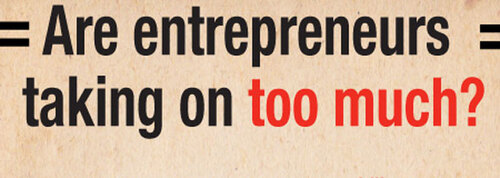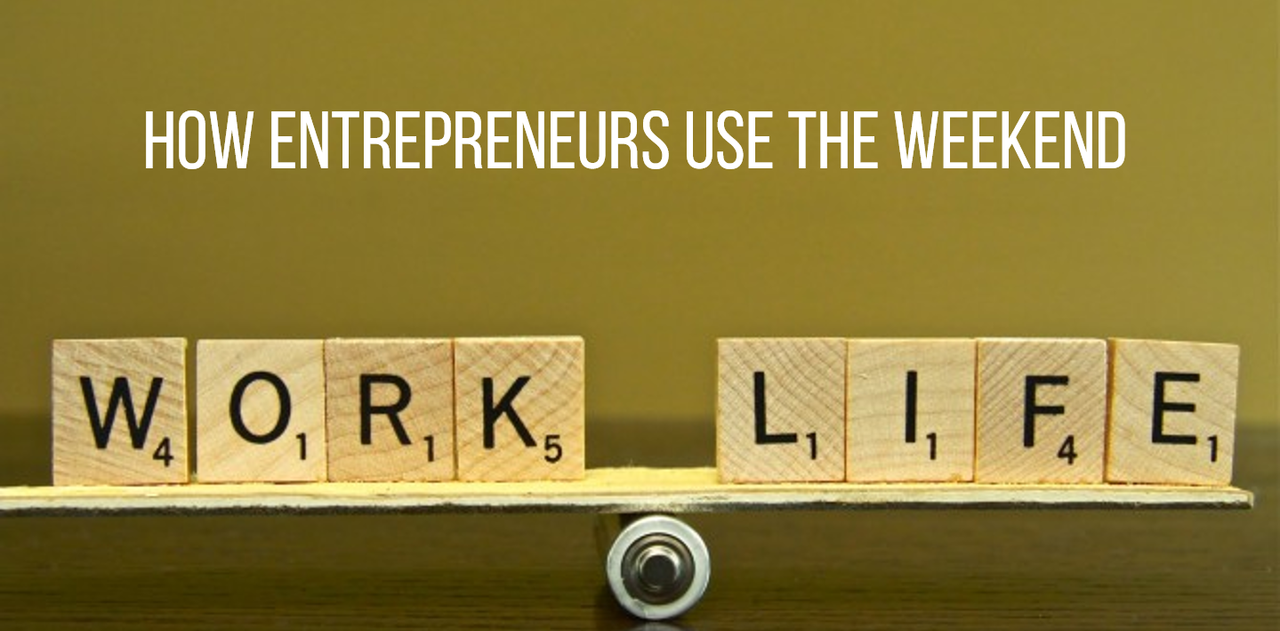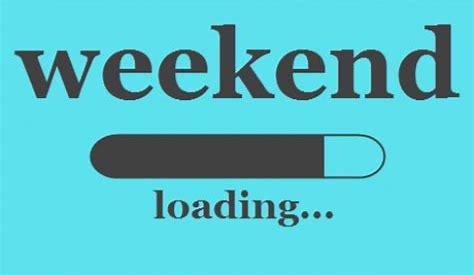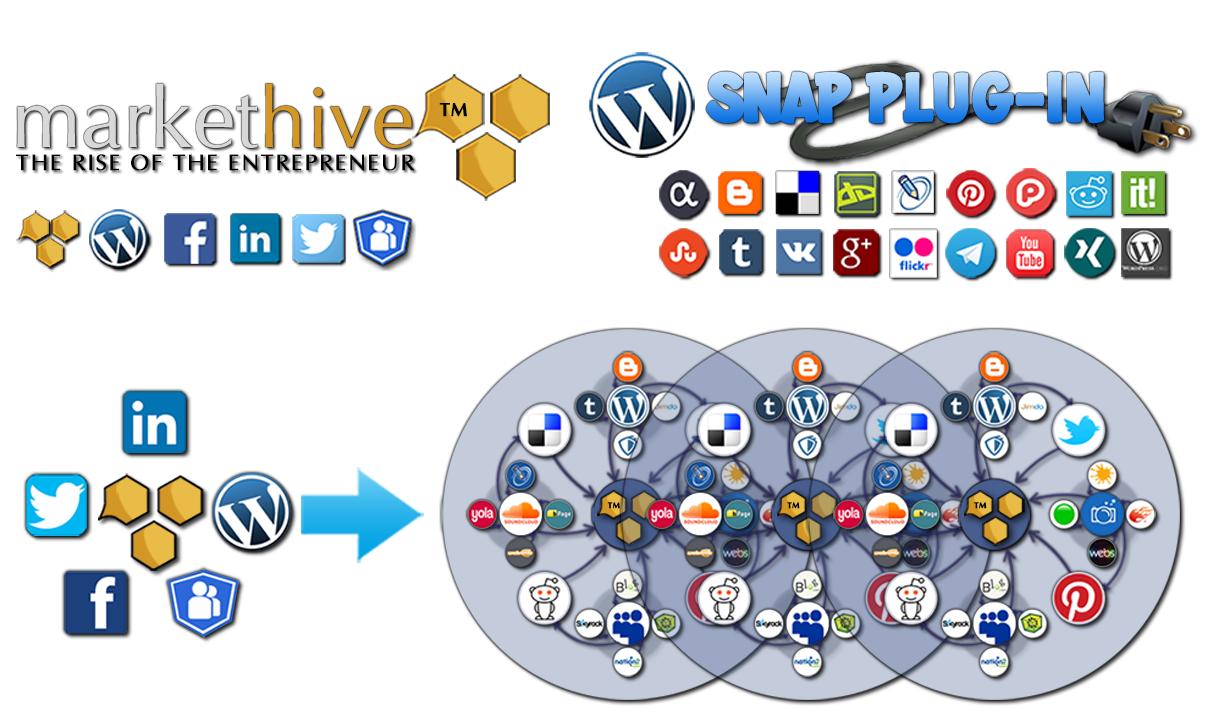

Ah, the weekend. For those with "regular" jobs, it's a time to relax–a time to pursue interests outside the day-to-day grind of the working world. On the weekend, work may be the furthest thing from the minds of those who work for someone else.
Then, there are entrepreneurs.
Let's face it–when you're an entrepreneur, there really is no weekend. At least, that's true for many of us who've pursued an entrepreneurial path.
Entrepreneurs eat, sleep and dream their businesses. For them, being forced to take "downtime" on the weekend may even be viewed with disdain. But, why do weekends present such a conundrum for entrepreneurs?
1. Work is not really work
"Weekends can suck for a multitude of reasons, but my biggest challenge is that nobody else works. As entrepreneurs there's no such thing as 9-5, so I use this fact as a competitive advantage," says Andrew Medal, founder of Agent Beta. "In an effort to recondition my mind, and break free from societal norms I force myself to work odd hours. In fact, some days I intentionally don't work during traditional hours. I'll see a movie on a Monday morning, schedule meetings on the weekends, and work late hours at night. I work way more than 40 hours per week, but that's because my work days are not just Monday through Friday 9-5. My workdays are every day of the weekend, 24-7."
Studies show that entrepreneurs can have addictive personalities. It is, in fact, possible for them to become addicted to entrepreneurship. This issue was examined in a paper published in the Journal of Business Venturing. In spite of the risks to their relationships and to their health, there are those who repeatedly pursue launching businesses. But why?
Researchers found that habitual entrepreneurs can show symptoms of behavioral addiction similar to those who gamble, for example. These can include obsessive thoughts, withdrawal-engagement cycles and guilt. So, there may actually be a valid reason why entrepreneurs have difficulty separating their work from their personal lives.
Brett Baughman, Expert NLP Trainer & Founder of the Coaching Alliance says, "There are two keys to optimizing your potential and growing your business successfully; the right plan and discipline. You have the passion, now create a plan that uses your skills intelligently and be disciplined to stick to it. When done correctly, you will have more time than you need!"
2. Decisions impact family (finances that is)
When you're an entrepreneur AND the primary breadwinner, taking weekends off may be a struggle psychologically–because downtime = less income. So, while you're out at your child's ballgame, you may worry that your business will suffer. When covering the mortgage is reliant upon whether you land that deal you've been working on for months, it stands to reason that you may struggle to decide between working–or spending time with family.

Your business is your baby–it can be all-consuming. Although there's little research on the topic of higher divorce rates among entrepreneurs, it's said to be higher than that of the general population (which hovers around 50 percent). So, while treating your business with the urgency it deserves is top of mind, you need to also balance that with the cost of not spending time with your family.
Maybe there are ways to combine both work and family time. If you need to attend a work-related event, you may be able to bring your spouse–or even the whole family, depending on what it is. The same goes for trips–there may be ways to combine business and pleasure. Look for those opportunities and try to take advantage of them when possible.
3. Anxious for progress
In addition, there are at any given time numerous competitors who are willing to work as hard–or harder–than you. Naturally, this feeds anxiety for entrepreneurs, as well. Take the weekend off, and you may just wake up Monday morning to learn your competition has launched that new product or service you were planning to roll out. This may contribute to the feeling that progress can't be made if you're out golfing instead of working.
And, in a study of entrepreneurs, the only significant predictor found across the board in those whose businesses made it past eight years was conscientiousness–so, not only are entrepreneurs anxious to make progress, but their conscientious behavior lends itself to the drive to move the business forward, while also making it difficult to give themselves permission to take time off.
This type of mindset may make them so anxious for progress that they'll go to any lengths to be sure they don't fail. But, working more may not ensure progress. In fact, this mindset may be counter-productive.
Some argue that giving oneself time off can lead to faster progress. Dan Sullivan, co-author of The Laws of Lifetime Growth, says, "You can create a solution in a shorter period of time if you're rested and rejuvenated." He goes on to say that the typical entrepreneurial mentality of viewing downtime as detrimental can keep entrepreneurs from maximizing the potential of their businesses.

Own A Piece Of Markethive – Lifetime Income Opportunity
Markethive, the first Social/Market Network built on the Blockchain, introduces The Entrepreneur Program
Click here, Markethive is Completely Free To Join
The Entrepreneur program is designed to leverage your system. Your free Markethive system is a market network, like a social network, but with powerful inbound marketing tools integrated into the system. This premier hybrid social network includes news feeds, blogging platforms, video channels, chat channels, groups, image sharing, link hubs, resume, profile page and peer to peer commerce. But more than a social network, we have also delivered to you “Inbound Marketing tools” like broadcasting, capture pages, lead funnels, autoresponders, self-replicating group tools, traffic analytics, and more. Plus, we are built on the Blockchain which allows Airdrops of 500 Markethive Coin (MHV) upon joining and micropayments for using the tools mentioned above. This is all free to you.
The Entrepreneur program is designed to add gold plating to an already stellar and unbelievably valuable system you receive for free.
The Markethive Coin – MHV Consumer Coin
Notably, MHV was listed on the first of many exchanges, including its own exchange [in development] in March in 2019 and is currently valued at $0.18. The Markethive coin will not be dependent upon speculative value as is the case with other cryptocurrencies and platforms, thereby creating eternal economic velocity in the entrepreneur ecosystem within Markethive.
Click here, Markethive is Completely Free To Join

Click here, Markethive is Completely Free To Join
